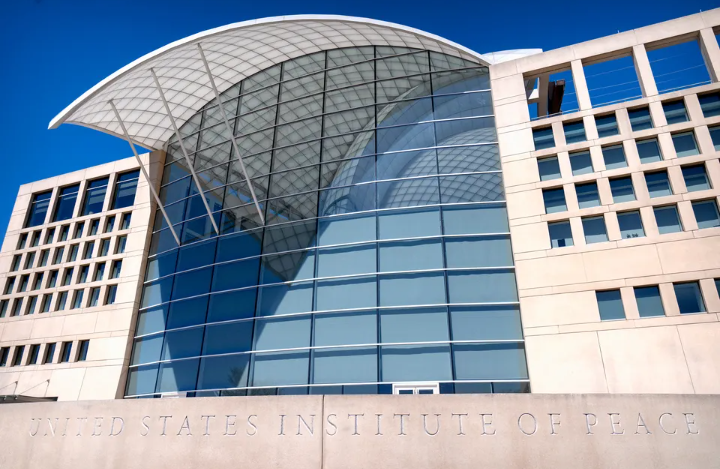In a surprising turn of events, court filings reveal that a DOGE-affiliated official is attempting to transfer the United States Institute of Peace (USIP) headquarters—valued at $500 million—to the General Services Administration (GSA) at no cost. This move has triggered legal action, raising questions about the future of the independent think tank and the power dynamics at play.
DOGE’s Takeover of USIP
Tensions at USIP have been mounting for weeks. It all began when the Trump administration dismissed the institute’s 10 voting board members on March 14. Shortly after, DOGE representatives were denied entry into the building by USIP staff. Undeterred, DOGE employees gained access three days later using a physical key from a former security contractor.
The situation escalated further when former State Department official Kenneth Jackson assumed the role of acting president, effectively cementing DOGE’s control over the institute. By Friday, most USIP employees had received termination notices, signaling a full-scale takeover.
The Legal Battle Begins
Unsurprisingly, former USIP officials have taken legal action. They’ve filed a lawsuit against Jackson, DOGE, Donald Trump, and other members of the Trump administration, accusing them of unlawfully dismantling the institute. The lawsuit seeks immediate intervention to halt DOGE’s actions.
On March 19, U.S. District Judge Beryl Howell declined USIP’s request for a temporary restraining order that would reinstate the institute’s board. However, she expressed strong disapproval of DOGE’s takeover during court proceedings.
The $500 Million Property Transfer
New court documents filed on Monday reveal DOGE’s next move—handing over USIP’s assets, including its prime real estate in Washington, D.C., to the GSA. The filing shows that Nate Cavanaugh, a former GSA official now installed as USIP’s acting president, has been instructed to execute the transfer.
A letter detailing these instructions, signed by Secretary of Defense Pete Hegseth and Secretary of State Marco Rubio, emphasizes that the decision aligns with “the best interests of USIP, the federal government, and the United States.” Cavanaugh estimates the building’s fair market value at $500 million but is seeking an exemption from the usual reimbursement requirements for such transfers.
In a separate letter dated March 29, Russell Vought, Project 2025 architect and director of the Office of Management and Budget, approved the request to transfer USIP’s headquarters to the GSA at no cost.

To put it plainly, DOGE ousted USIP’s leadership, installed its own official as acting president, and is now attempting to transfer a $500 million federal building—completely free of charge—to an agency it controls.
What’s Next?
Lawyers representing former USIP employees have filed a motion to prevent the transfer, arguing that it is an unlawful dismantling of the institute. Meanwhile, government lawyers maintain that the move is consistent with an executive order issued by Donald Trump in February, which aims to “rein in independent agencies.”
Judge Howell is expected to rule on the property transfer on Tuesday, with a broader decision on the USIP case anticipated by the end of the month.
This legal battle highlights the ongoing struggle over control of independent agencies and raises concerns about the extent of executive authority. Will the courts intervene, or will DOGE successfully push its agenda forward? Stay tuned for updates.



